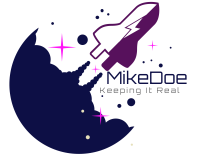High-level maths can be challenging, including concepts such as quantum mechanics and relativity. Most children are not ready for this level of maths until they are 14 years old, and most don’t make it to university. But there are some brilliant examples of young people who learn advanced concepts at an early age. Take, for example, the Polish composer Mozart, who was forced to work at a very early age. This forced him to learn how to compose and perform.
Essentialism
Essentialism refers to the idea that some knowledge is necessary for other knowledge. For example, if you want your child to understand how to draw a picture, he/she must have an understanding of how colors and shapes work. This requires an understanding of the importance of these concepts and the differences between them.
Essentialists believe that democracy must have discipline and that it is important to have an educated electorate. They believe that without literacy, a democracy cannot thrive. For this reason, essentialists believe that it is important for our children to have a foundation of literate knowledge and skills.
The basic skills and subjects that a child needs to learn should be taught first, and only then should they move on to advanced concepts. In essence, essentialist educators focus on teaching students the core knowledge that they need to become productive citizens. This includes math, reading, foreign language, science, and history. They also stress the importance of memorization, repetition, and practice.
Complexity
The first step in helping your child master advanced concepts is to help them understand them. Often, this involves teaching concept words. By doing this, your child will be better prepared to learn procedural skills later. For example, a child may need to learn the concepts of before and after, categorical concepts (like the types of objects), and descriptive concepts (such as color, texture, size, smell, taste, and hardness).
Time management
One of the most important skills for time management is being able to set realistic goals. If you don’t set goals, you won’t know how to spend your time effectively. Whether it is to complete a project on time or not, setting goals is essential. Using a time management software makes setting goals a breeze.
Time blocking allows you to prioritize tasks and set how long each task should take. By creating a schedule, you will spend less time deciding what to do and more time on the most important tasks. This will improve your focus and prevent you from getting distracted by other tasks. You can use tools such as TimeCamp to manage your time effectively.
The “Getting Things Done” method has become one of the most popular time management methods. Essentially, you write down all the tasks and projects you have scheduled for the week. It helps you color-code work responsibilities, school assignments, and personal to-dos. You can then estimate how long each task should take. You can also use a time management reflection sheet to keep track of your progress and identify any areas that require more time than others.
Expectations
A learning progression is a structure for teaching and learning that defines how a student should proceed from a basic knowledge level to more advanced concepts. These expectations are often mapped out by subject area to meet the needs of students at various developmental stages and grades. They reflect clearly-defined sequences and are usually stated in learning standards. The learning expectations at each grade level build on previous concepts and help students prepare for the more complex concepts at the next level.
It is essential that the expectations for students are not treated as ceilings or walls. While grade-level standards do represent a minimum level of achievement, they do not represent a ceiling on the student’s ability to grow. It is important to recognize that the growth of students with advanced concepts and skills may be less than the growth of their same-aged peers.
Informational sources
Citation patterns for students using informational sources show a pattern of limited citation. Approximately 63% of students cite the same source twice or more, and almost half cite only one or two sentences from the source. While this may not sound like much, it shows that students may not be reading sources in depth.
When choosing an informational source for learning advanced concepts, it is important to determine how reliable it is. Experts evaluate information based on the quality of its creation and the credibility of its creator. Consequently, they may need to apply different criteria to compare the credibility of different information products. Experts also make sure that the information is relevant to their needs and context.

